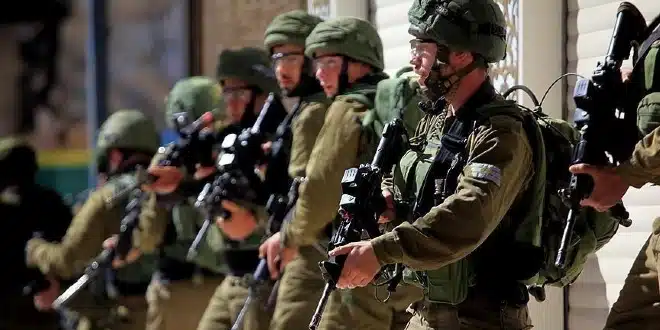The Israeli military has stated that it is ready to pull out of Lebanese territory and transfer control to the Lebanese army within the timeframe established by a U.S.-French-mediated ceasefire agreement. This ceasefire, effective November 27, stipulates that Lebanon’s military and United Nations peacekeepers will take over the south as Israeli soldiers withdraw within 60 days, later extended until February 18. Hezbollah would also be required to vacate its positions on the Israeli border during this period.
An Israeli senior security source, who did not want to be named, confirmed that the army is holding fast to the U.S.-monitored agreement and is in close coordination with the U.S. to transfer responsibility to the Lebanese Army according to schedule. Nevertheless, the official refused to comment whether the withdrawal is for the five locations Lebanese Speaker Nabih Berri cited, stating that the U.S. informed him that the U.S. informed him that Israel has made up its mind to remain in these locations after the deadline—a move Lebanon is against.
The Israeli military keeps a watchful eye on Hezbollah’s activities, blaming efforts to breach the agreement by operating in the form of civilians, gathering or transferring weapons, and Bekaa Valley arms smuggling. Meanwhile, both Hezbollah and the United Nations have blamed Israel for violations of the ceasefire.
The conflict between Hezbollah and Israel continued for over a year, peaking at two months of intense combat before the November 27 agreement became operative. Hezbollah stated its actions were in solidarity with the Palestinian militant organization Hamas in Gaza, where Israel had been fighting a protracted war before an uneasy truce was arranged by international mediators in January.
With the February 18 deadline approaching, France has proposed a plan to accelerate the Israeli pullout. The plan involves United Nations peacekeepers, including French troops, replacing Israeli troops at key locations to allay Israel’s security concerns and allow for a complete withdrawal. The United Nations prefers the plan, which calls for UNIFIL peacekeepers to replace Israeli observation posts.
Despite all these, tensions remain elevated, each accusing the other of violating ceasefire agreements. Things are also complicated by local political trends, such as the recent downfall of Syria’s Bashar Assad, long accused of being behind the assassination of Lebanese ex-PM Rafik Hariri.
Hezbollah, suspected of Hariri’s assassination by a U.N.-supported tribunal, is also at a crossroads after the assassination of its leader, Hassan Nasrallah. These events have far-reaching implications for Lebanese politics and the wider Middle East.


